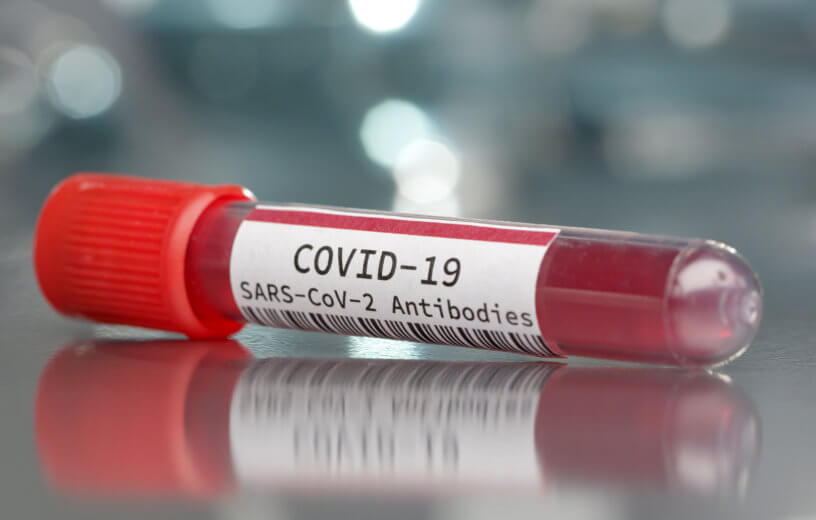LA JOLLA, Calif. — “Antibodies” is among the hottest buzzwords in the hunt for an effective treatment or vaccine for COVID-19. So, it’s no surprise that these tiny Y-shaped molecules are the focus on some of the largest collaborative research efforts. Recently, a team of more than 30 scientists from Scripps Research identified a series of potent virus-blocking antibodies, known as neutralizing antibodies (nAbs), in the blood of recovered COVID-19 patients. These nAbs are now being produced for clinical trials to test their potential as a treatment or preventative against SARS-CoV-2 infection.
The project, led by the International AIDS Vaccine Initiative (IAVI) and the University of California San Diego School of Medicine, both at Scripps, involved the concurrent design and execution of a complex series of experiments across laboratories. Researchers recruited a cohort of naturally-infected individuals who had recovered from COVID-19 for the study. In less than seven weeks, they collected blood samples, developed functional assays to rapidly screen and sort antibodies from these samples, and set up cell and animal models to evaluate the antibodies for protection against SARS-CoV-2.
The scientists characterized more than 2,000 antibodies overall. The most potent ones, based on neutralization of SARS-CoV-2 in human test cells, were further evaluated in a Syrian hamster animal model for protection against disease. Animals that received the most potent nAbs were protected, the authors report.
“It has been a tremendous collaborative effort, and we’re now focused on making large quantities of these promising antibodies for clinical trials,” says Thomas Rogers, one of the study’s senior authors, in a statement.
Neutralizing antibodies ready for COVID-19 fight by January?
This would not be the first time nAbs have been used clinically to protect virally-infected patients from severe disease. The approach, known as passive immunotherapy, has been in widespread clinical use for other viruses as well, including respiratory syncytial virus (RSV), which can cause serious infection in infants and older adults, and Ebola virus.
Injections of SARS-CoV-2-specific nAbs early in infection could protect against severe COVID-19 disease in humans. In addition, nAbs could provide temporary, vaccine-like protection for the most vulnerable populations. If shown to be safe and effective in clinical trials, SARS-CoV-2 nAbs could be in use in the clinical setting for COVID-19 as early as January 2021.
Not just for SARS-CoV-2
Another important finding of the study was that one nAb that was isolated also showed neutralization activity against SARS-CoV. This is the related coronavirus that caused an outbreak of severe acute respiratory syndrome (SARS) in Asia in 2002-2004.
“That discovery gives us hope that we will eventually find broadly neutralizing antibodies that provide at least partial protection against all or most SARS coronaviruses,” notes co-senior author Dennis Burton, “which should be useful if another one jumps to humans.”
The study is published in Science.
